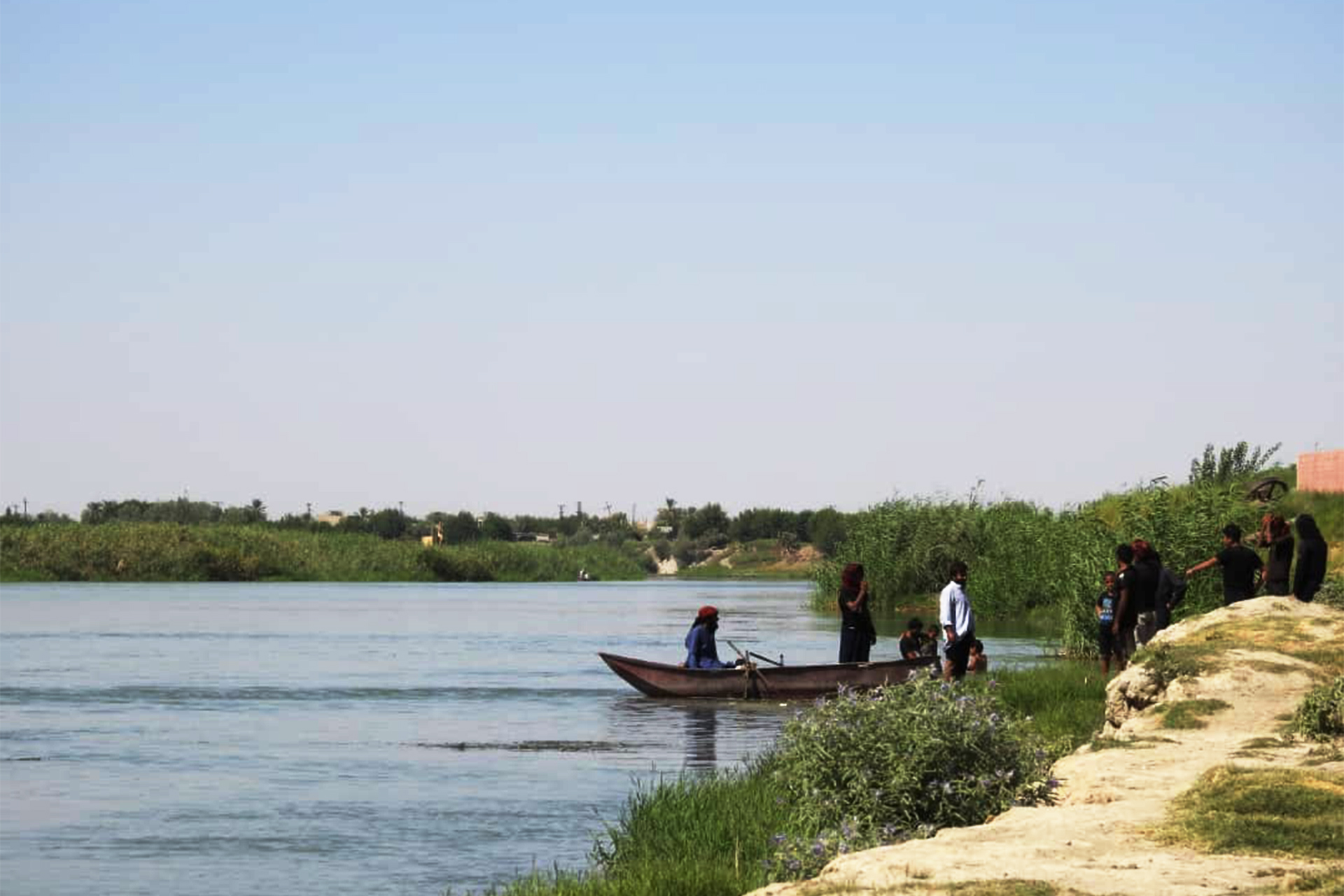One of the towns of Deir ez-Zor overlooking the Euphrates River (Al-Jazeera)
Eastern Syria -
The regions of eastern Syria are considered the country's largest economic reservoir, including Deir ez-Zor Governorate, due to its underground, agricultural, and livestock resources.
Most of the governorate's residents work in agriculture, as the percentage of farmers reached about 43% of the population in the 2004 census, making it a prominent destination for the economy. After the outbreak of the revolution in March 2011, the agricultural sector, like other sectors, began to decline, especially in recent years.
influential factors
The agricultural sector in Deir ez-Zor Governorate is facing a noticeable decline in cultivated areas, due to the many obstacles the farmer faces, including the high cost of fuel and the scarcity of support.
Farmer Bassam Al-Salem (a pseudonym) says that fuel prices have risen significantly, with the price of a liter of diesel reaching 6,000 Syrian pounds (half a dollar).
Al-Salem added in an interview with Al Jazeera Net that the scarcity of support from the regime’s Agriculture Directorate in Deir ez-Zor, and the high prices of fertilizers to 450,000 Syrian pounds ($35), not to mention the costs of transportation and royalties from security barriers, makes him think “about staying away from agriculture, if it were not for the pressures.” And the security threats made by the Directorate of Agriculture to arrest and imprison farmers if they do not cultivate their lands.”
For his part, farmer Abdel Moneim Gemayel says that seed prices recorded a noticeable increase, reaching 2,950 liras ($0.23) per kilo at the Seed Multiplication Foundation.
Al-Jamil pointed out that the areas cultivated for winter crops such as wheat decreased to 24 thousand hectares and summer crops to 10 thousand hectares, including 8,500 hectares for cotton, in addition to an increase in the costs of plowing, harvesting and labor.
In turn, agricultural engineer Omar Al-Khalaf reviewed - in his speech to Al Jazeera Net - a number of other obstacles, such as the scarcity of pesticides and their high prices, stressing the lack of rain-fed agriculture in the Deir ez-Zor desert, due to the danger of the place, which is infested with militias and the spread of mines.
Corruption and royalties
The regime's departments in the agricultural sector - starting with the agricultural associations, passing through the Farmers' Union and ending with the Directorate of Agriculture - rely on favoritism, bribery, and the interference of influential people from the Baath Party and the security branches in their work, according to what journalist Rami Al-Ahmad tells Al Jazeera Net.
Al-Ahmad points out that the security checkpoints impose royalties on vehicles transporting crops, especially cotton crops when transporting them from Deir ez-Zor to Hama Governorate.
The same spokesman reveals that the Fourth Division checkpoints deployed at the northern entrance to the city of Deir ez-Zor at the Panorama checkpoint demand sums of money for trucks to cross, and this matter burdens the farmer.
In turn, agricultural engineer Faisal Dahmush says that international organizations have failed to provide agricultural support to those who deserve it, as it now goes to influential people.
Dahmush confirms that despite the rehabilitation of some organizations for the agricultural sector in the towns of rural Deir ez-Zor, the situation continues to deteriorate due to the spread of the phenomenon of salinization that has affected agricultural lands, the use of traditional methods of irrigation, and the inability of planning within the Ministry and Directorate of Agriculture.
Al-Dahmush adds - to Al Jazeera Net - that the loss of spare parts, the high cost of maintenance, the need for water and take-off engines, in addition to the rise in oil prices to 50 thousand liras ($4) per kilo, the poor quality of their types, and the scarcity of water are factors that led to the spread of reserves and special projects for regime officials, noting that Drilling unlicensed wells randomly led to the depletion of water resources.
Drought and high costs
Traction canals in the third sector in the eastern countryside of Deir ez-Zor and some agricultural associations stopped working, as a result of disputes with neighboring countries, in addition to water scarcity in some agricultural seasons, and the decline in the water level of the Euphrates River.
Activist Ahmed Al-Ali told Al Jazeera Net that the scarcity of rain and successive dust storms, due to drought, in addition to weather factors such as frost and high temperatures, also contributed to crop damage and a decline in agricultural production.
For his part, farmer Saleh Al-Maysar says that the production price estimated by the regime is not commensurate with the cost price, as the price of a kilo of wheat reached 2,300 Syrian pounds, while the cost of cultivating one dunum (0.1 hectare) exceeds one million Syrian pounds, and he adds that there are a lack of marketing centers. Wheat and other crops.
As for the researcher at the Mary Research Center, Dr. Marouf Al-Khalouf, he told Al Jazeera Net that agricultural production declined due to climatic and natural conditions, the destruction of irrigation networks, and the increase in costs and requirements for the farmer, in addition to poor planning in the management of the system.
The agricultural sector in Deir ez-Zor Governorate is witnessing a noticeable decline in cultivated areas due to the many obstacles (Al-Jazeera)
Source: Al Jazeera

